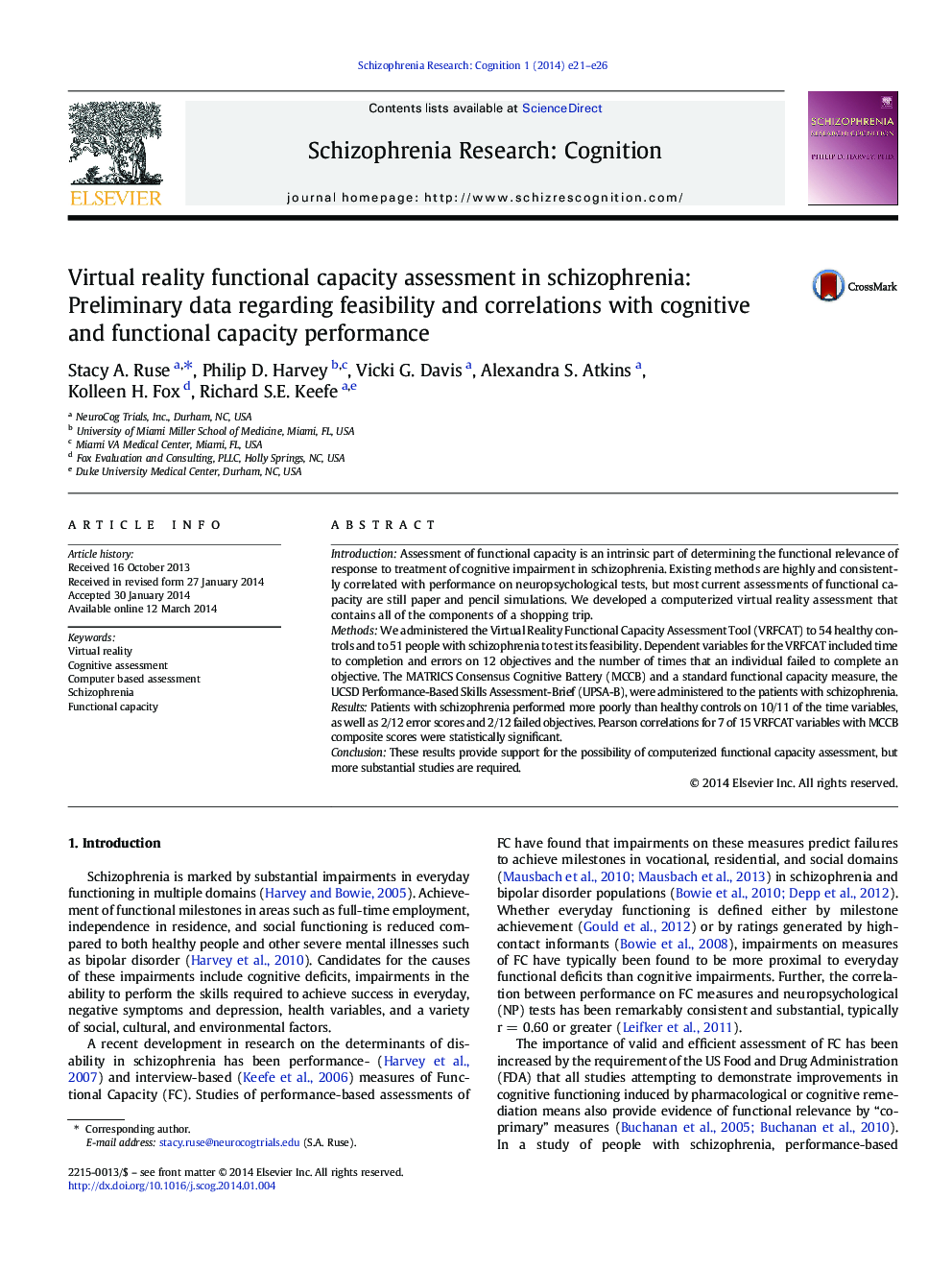| Article ID | Journal | Published Year | Pages | File Type |
|---|---|---|---|---|
| 4191692 | Schizophrenia Research: Cognition | 2014 | 6 Pages |
IntroductionAssessment of functional capacity is an intrinsic part of determining the functional relevance of response to treatment of cognitive impairment in schizophrenia. Existing methods are highly and consistently correlated with performance on neuropsychological tests, but most current assessments of functional capacity are still paper and pencil simulations. We developed a computerized virtual reality assessment that contains all of the components of a shopping trip.MethodsWe administered the Virtual Reality Functional Capacity Assessment Tool (VRFCAT) to 54 healthy controls and to 51 people with schizophrenia to test its feasibility. Dependent variables for the VRFCAT included time to completion and errors on 12 objectives and the number of times that an individual failed to complete an objective. The MATRICS Consensus Cognitive Battery (MCCB) and a standard functional capacity measure, the UCSD Performance-Based Skills Assessment-Brief (UPSA-B), were administered to the patients with schizophrenia.ResultsPatients with schizophrenia performed more poorly than healthy controls on 10/11 of the time variables, as well as 2/12 error scores and 2/12 failed objectives. Pearson correlations for 7 of 15 VRFCAT variables with MCCB composite scores were statistically significant.ConclusionThese results provide support for the possibility of computerized functional capacity assessment, but more substantial studies are required.
